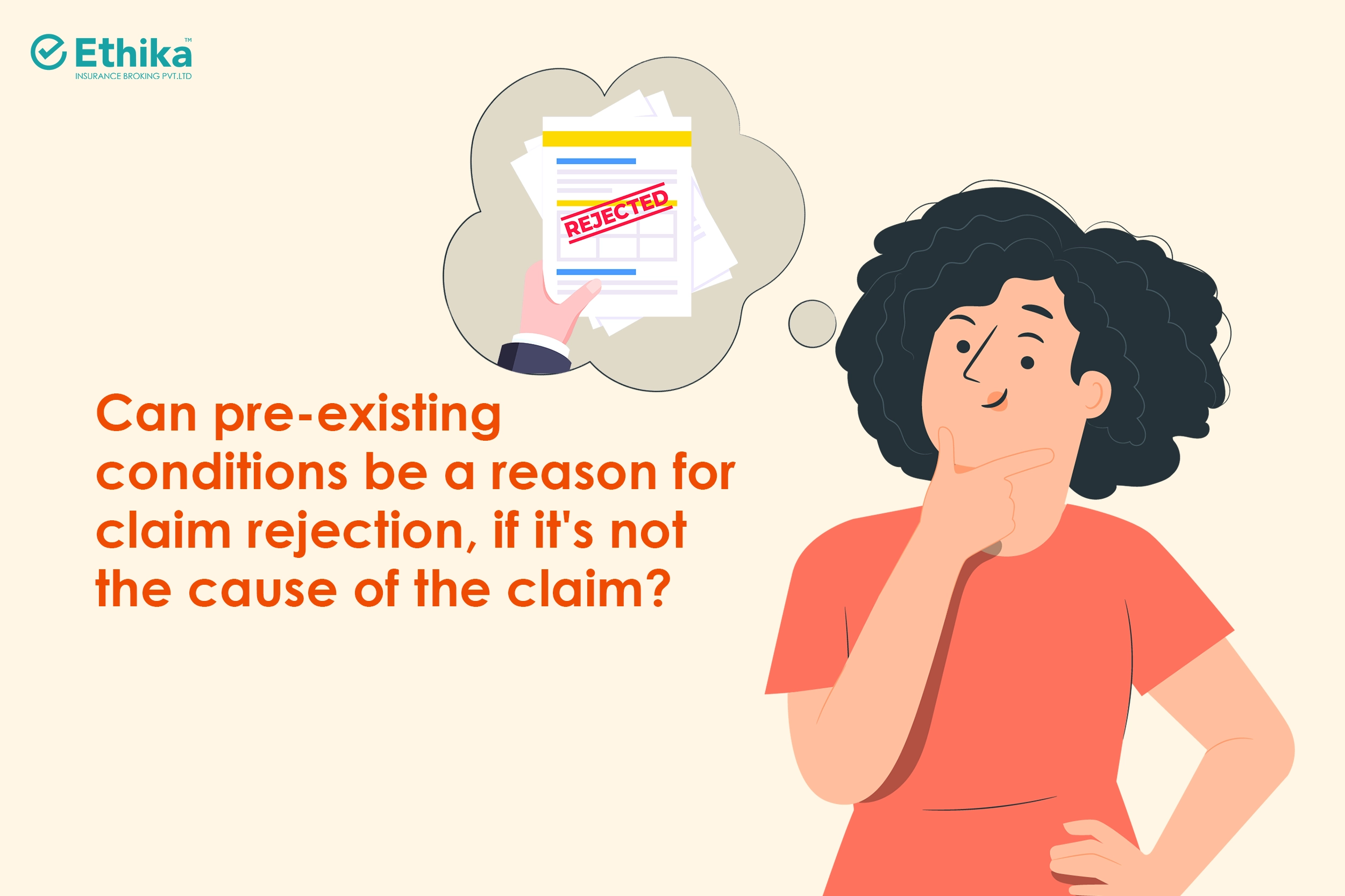
Pre-existing conditions can easily classify as a nightmare for most insurance policyholders. Insurers tend to use pre-existing diseases as one of their biggest allies to reject claims. The IRDA has to constantly come to the rescue of the policy holder, to ensure fair treatment. But can a claim be rejected, even when the underlying cause is not a pre-existing disease? Let’s find out!
What’s on this page?
How Pre-Existing Conditions Affect Health Insurance Claims: Key Takeaways from a Real-Life Case:
Pre-existing conditions can often be the reason behind health insurance claim rejections. But is it fair if the condition isn’t directly related to the claim? This article examines a pivotal case where a claim was denied due to an alleged pre-existing condition and explores the Consumer Commission’s verdict. Read on to understand how this ruling impacts health insurance policyholders.
Case Study Timeline: The Events Behind a Landmark Decision on Claim Rejection Due to Pre-Existing Conditions
- Policy Purchase – March 2017:
Mr. Gupta bought the HDFC Life Group Credit Plus Insurance policy for ₹19,42,176 with a premium of ₹95,652.17. The coverage period was set from 29/03/2017 to 28/03/2018. - Policyholder’s Death – August 2017:
Mr. Gupta passed away from chronic liver disease, portal hypertension, and diabetes mellitus. - Claim Rejection – 2017–2024:
Anita Gupta, his wife, filed a claim that was rejected by HDFC Life, citing nondisclosure of a pre-existing condition—diabetes mellitus. According to the insurer, this amounted to a breach of the “utmost good faith” principle, as the condition was not disclosed at policy inception. - Consumer Commission Appeal:
Anita took the matter to the Delhi Consumer Disputes Redressal Commission, seeking claim settlement and compensation for emotional distress.
Can Pre-Existing Conditions That Are Not Related to the Claim Lead to Rejection? The Final Judgment Explained
The Delhi Consumer Disputes Redressal Commission examined the case, focusing on key aspects:
- Unrelated Cause of Death:
The commission noted that the cause of death was unrelated to the alleged pre-existing condition, diabetes, which was not directly linked to chronic liver disease or portal hypertension. - Lack of Proof for Pre-Existing Conditions:
HDFC Life did not present sufficient evidence proving that Mr. Gupta had diabetes before taking the policy.
Final Verdict:
The commission ruled that HDFC Life must pay the claim amount of ₹19,42,176, plus 6% interest from the date of claim application. This amounted to approximately ₹28 lakhs by March 2024, setting an important precedent for handling pre-existing conditions in claims.
Key Lessons for Policyholders: What This Case Teaches About Pre-Existing Conditions in Health Insurance
This case provides critical insights for health insurance policyholders, especially concerning transparency and pre-existing condition disclosures. Here’s what you should know:
- Always Disclose Pre-Existing Conditions
- Understand Policy Terms and Waiting Periods
- Know Your Rights if a Claim Is Rejected Due to Pre-Existing Conditions
By understanding how pre-existing conditions affect health insurance claims, policyholders can make informed decisions, ensuring transparency and protecting their rights in case of claim disputes.
FAQs:
1. Should I disclose all pre-existing conditions when buying health insurance?
Yes, full disclosure is essential. Failing to disclose pre-existing conditions can lead to claim rejection due to breach of the “utmost good faith” principle.
2. Is a health check-up required before purchasing health insurance?
Not always, but it’s advisable. A medical check-up provides a documented health baseline, reducing the risk of claim issues from alleged undisclosed conditions.
3. What are lifestyle diseases, and do they count as pre-existing conditions?
Lifestyle diseases like diabetes, hypertension, and obesity are considered pre-existing conditions and usually require a waiting period before coverage.
4. Are pre-existing conditions covered by health insurance policies?
Yes, but typically only after a waiting period, which can range up to four years, depending on policy terms.
5. What qualifies as a pre-existing condition under health insurance policies?
The IRDAI defines a pre-existing condition as any ailment or disease that was diagnosed or treated within 48 months prior to the policy’s start date or reinstatement.